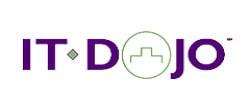CISM - Certified Information Security Manager
Information Systems Audit and Control Association (ISACA) provides three testing opportunities each year, so we developed this Certified Information Security Manager (CISM) exam prep course to help you get it right the first time. The course focuses on advanced risk management and specific compliance and security management operations. Along with our custom course material, you'll receive a free copy of ISACA's CISM Review Manual 2013.Interested in group training toward 8570.1 compliancy. This course can be a component of our 8570.1 Training Solution that can also include assessments, certification preparation and program management, post training and testing, 8570 compliancy tracking and reporting, and continuing education. The CISM exam is offered three times a year (June, September and December) and consists of 200 multiple-choice questions. The CISM exam is focused on the four domains defined by ISACA.
Provider Information
IT Dojo
4176 S Plaza Trail
Suite 207
Virginia Beach, VA 23452
Course Overview
Five years of experience with audit, IT systems, and security of information systems; systems administration experience; familiarity with TCP/IP; and an understanding of UNIX, Linux, and Windows. This advanced course also requires intermediate-level knowledge of the security concepts covered in the Security+ certification.
4176 S Plaza Trail
Suite 207
Virginia Beach, VA 23452
Learning Objectives
1. Testing-Taking Tips and Study Techniques Preparation for the CISM exam Submitting Required Paperwork Resources and Study Aids Passing the Exam the First Time2. Information Security Governance Asset Identification Risk Assessment Vulnerability Assessments Asset Management3. Information Risk Management Asset Classification and Ownership Structured Information Risk Assessment Process Business Impact Assessments Change Management4. Information Security Program Development Information Security Strategy Program Alignment of Other Assurance Functions Development of Information Security Architectures Security Awareness, Training, and Education Communication and Maintenance of Standards, Procedures, and Other Documentation Change Control Lifecycle Activities Security Metrics5. Information Security Program Management Security Program Management Overview Planning Security Baselines Business Processes Security Program Infrastructure Lifecycle Methodologies Security Impact on Users Accountability Security Metrics Managing Resources6. Incident Management and Response Response Management Overview Importance of Response Management Performing a Business Impact Analysis Developing Response and Recovery Plans The Incident Response Process Implementing Response and Recovery Plans Response Documentation Post-Event Reviews7. Review and Q&A Session Final Review and Test Prep
Framework Connections
The materials within this course focus on the NICE Framework Task, Knowledge, and Skill statements identified within the indicated NICE Framework component(s):
Feedback
If you would like to provide feedback on this course, please e-mail the NICCS team at NICCS@mail.cisa.dhs.gov. Please keep in mind that NICCS does not own this course or accept payment for course entry. If you have questions related to the details of this course, such as cost, prerequisites, how to register, etc., please contact the course training provider directly. You can find course training provider contact information by following the link that says “Visit course page for more information...” on this page.
